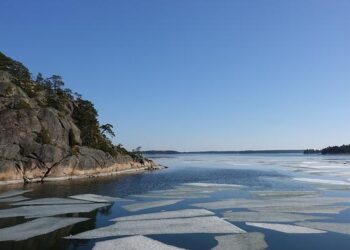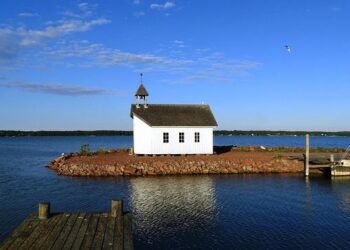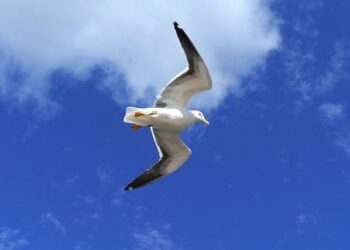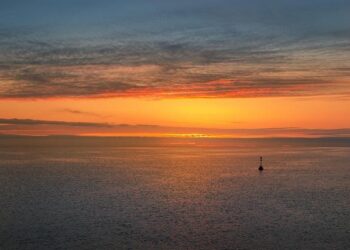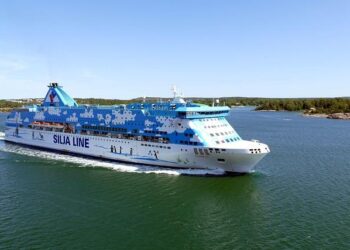û landãs Centennial of Autonomy: Celebrating a Century of Distinctive Self-Governance
Marking 100 years since gaining autonomous status, the û land Islands stand as a remarkable example of self-rule within the Nordic region. Situated in the Baltic Sea, this Finnish territory has nurtured a unique cultural identity that harmoniously blends Swedish traditions with Finnish influences. Throughout the past century, û land has steadfastly preserved its linguistic heritage and cultural distinctiveness. The centennial festivities feature an array of events that honor û landãs special political standing and highlight its valuable contributions to Nordic cooperation. This milestone offers an opportunity to reflect on both the obstacles overcome and successes achieved by û landers in shaping their autonomous future. Exploring û landãs autonomy reveals not only historical significance but also an ongoing narrative about self-determinationãs role in enriching Nordic diversity.
A Century of Autonomy in û land: Key Milestones and Contemporary Challenges
Over the last hundred years, û land has evolved into a distinctive model for regional autonomy, balancing political independence with cultural preservation. Several landmark developments have defined this journey:
- Creation of the Regional Parliament (1922): Establishing local legislative authority empowered residents to govern internal affairs.
- Preservation of Swedish as Official Language: Maintaining Swedish as the dominant language safeguards cultural continuity amid broader Finnish governance.
- Integration into the European Union (1995): EU membership brought economic opportunities while respecting local legislative powers.
Despite these achievements, challenges persist that require adaptive strategies:
- Demographic Shifts: An aging population combined with youth migration toward mainland Finland threatens long-term community vitality.
- Evolving Economic Landscape: While tourism remains vital, diversifying industries is essential for sustainable growth.
- Sustainability Pressures: Balancing development with environmental conservation demands careful planning to protect unique ecosystems.
Insights from û landãs Autonomous Governance Model for Other Regions Worldwide
û land’s governance frameworkãshaped by over a century of autonomyãoffers valuable lessons for regions pursuing greater self-determination or decentralized administration. Central features include inclusive policymaking processes that engage diverse community voices alongside alignment with national and international regulations.
The archipelago exemplifies how fostering collaboration between government bodies and citizens can create democratic yet efficient governance structures through its parliamentary system. This approach ensures local priorities are addressed without isolating from broader geopolitical contexts.
Globally relevant takeaways from û land encompass:
- Sustainable Environmental Policies: Emphasizing eco-friendly development supports both economic resilience and natural heritage protection.
- Economic Diversification Strategies: Encouraging innovation beyond traditional sectors strengthens financial independence.
- Cultural Identity Promotion: Investing in education and arts cultivates social cohesion critical for stable communities.
For example, similar to how New Zealand’s Máori communities integrate indigenous perspectives into governance frameworks, û landers maintain their linguistic heritage while participating fully within Finland’s state structureãa balance other regions might emulate.
Strategies to Sustain Cultural Richness and Economic Vitality in û landãs Future
To secure continued prosperity while honoring its distinct identity, û land must adopt multifaceted initiatives combining local innovation with international collaboration:
- Cultivating Local Craftsmanship: Empowering artisans preserves traditional skills while generating niche markets through authentic products reflecting island culture.
- Advancing Green Innovation : Prioritizing renewable energy projects such as wind or solar power aligns economic growth goals with environmental stewardship .
- Expanding Digital Infrastructure : Enhancing broadband connectivity attracts remote professionals , startups , and entrepreneurs , diversifying income sources .
- Strengthening Cultural Exchanges : Partnering across Nordic countries promotes shared heritage appreciation , boosting tourism appeal .
Complementary educational programs will play a pivotal role by blending regional history awareness with modern skill-building opportunities:
< strong >Program < strong >Objective
< / tr >
< /thead >Bilingual Education Initiatives< / td > Foster proficiency in both Swedish & Finnish languages reinforcing dual identity.< / td >
< / tr >Sustainability Workshops & Seminars< / td > Engage citizens on innovative ecological practices supporting long-term wellbeing.< / td > < / tr >
Cultural Heritage Scholarships< / td > Provide funding enabling deeper study into island traditions nurturing pride among youth.< / td > < / tr >
Concluding Reflections on û landãs Legacy and Path Forward
Celebrating one hundred years since achieving autonomy underscores not only how far û landers have come but also highlights their resilience amid evolving social-political landscapes. This centenary marks more than historical remembrance; it signals ongoing dedication toward sustainability, inclusive growth, and preserving communal bonds.
Looking ahead, maintaining this delicate equilibrium between tradition preservation and embracing innovation will be crucial for ensuring vibrant futures generations can inherit proudly.
Within Scandinavia’s mosaic of cultures & governments alikeãfrom Greenlandic home rule movements to Sami parliamentary institutionsãû landsã experience enriches collective understanding about peaceful coexistence through negotiated autonomy arrangements.
As global conversations around decentralization intensify amidst shifting geopolitical realities todayãand beyondãthe lessons embedded within this Baltic archipelago offer inspiring examples demonstrating how small communities can thrive autonomously without isolationism.
The next chapter beckons promising new avenues where technology integration meets cultural reverenceãa testament that self-governance remains dynamic rather than static even after 100 transformative years.
ADVERTISEMENT - Expanding Digital Infrastructure : Enhancing broadband connectivity attracts remote professionals , startups , and entrepreneurs , diversifying income sources .


